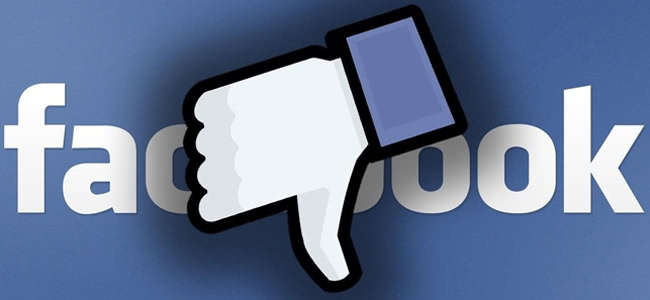Back in November, Facebook users who use the ubiquitous social media platform for more than just posting selfies and keeping everyone updated about their gym habits had a collective freakout after the company announced changes to their holy algorithm.
The social media giant instituted changes to the way users see content posted by their liked pages, which saw the reach of those pages decrease significantly. Suddenly, one of the greatest free promotional tools in a brand’s arsenal wasn’t so free.
The move was controversial, with many claiming that the social media sky was falling, while others claimed that while the changes would indeed see less traffic going to certain pages, it’s only because those pages aren’t very engaging.
Now, Facebook is set to introduce their most radical change since their algorithm overhaul last year and it’s something users have actually been wanting for quite a while. Yes, Mark Zuckerberg has confirmed that Facebook is getting a Dislike button.
As Gizmodo reports, during a recent town hall meeting, Zuckerberg acknowledged that a Dislike button has been one of the most-requested features by the Facebook audience, however he claimed the button will be used to express sympathy or empathy, rather than simple dislike.
Users have greeted the news with enthusiasm, but once again, brands aren’t so sure about this newfangled Dislike feature. As RetailWire reports, some companies are concerned about having their posts, particularly advertising, surrounded by thumbs-down.
“Facebook needs to be careful as to how they enable that capability with regard to advertising and all the potentially inflammatory discussions that could occur online,” Debra Aho Williamson, an analyst at eMarketer, told The New York Times.
“This seems like the perfect way for a customer to vent about a brand,” Sucharita Mulpuru, VP and principal analyst, Forrester Research, told Internet Retailer. “Some of the biggest recipients of the ‘dislike’ will definitely be brands and retailers.”
“Users have greeted the news with enthusiasm, but once again, brands aren’t so sure about this newfangled Dislike feature.”So what are the repercussions for bands and musicians or record labels, all of whom are effectively brands unto themselves? Consequence of Sound‘s Rock It Out! blog decided to assemble a panel of experts to find out what the impact might be.
“Anything that you don’t like on Facebook can get a dislike,” said host Sami Jarroush. “A Vine of a hamster, you may find it cute but someone may think that’s stupid and hit dislike and now suddenly a cute hamster is getting a thumbs down for no reason whatsoever.”
“Say an album comes out, say it’s streaming on Facebook, let’s say it gets more dislikes than likes, Facebook is not going to be a place for bands like Nickelback or Creed. Is something like this going to help or hurt pop culture on the internet?”
“I think it depends on what the dislike button actually is,” Red Eye staff writer Josh Terry opined. “There’s a lot of conversation with Facebook right now on whether it’s going to be like a traditional dislike button.”
[include_post id=”426198″]
“The thing is that Facebook should stay Facebook and the problem with social media sites is no matter what they’re all trying to copy each other. So Facebook introducing dislike… trying to be Reddit, Twitter trying to be Facebook by adding a news feed, that’s what’s bad for pop culture.”
“Personally, I think that if everybody likes [something] it can’t be good,” added musician Brandon Reed. “I have that theory where someone has to not like it to be substantial. It’s gotta make someone mad, so I feel like a dislike button might make me want to post more things.”
“If I were Mark Zuckerberg, I would make it an optional thing… if you want to post something, ‘Hey my grandma passed away’, and add a dislike button, let that happen,” said Vocalo.org host Jill Hopkins. “But if you just post a video of you learning to play ukelele, that doesn’t need a dislike button.”
Check out the full discussion below.



































